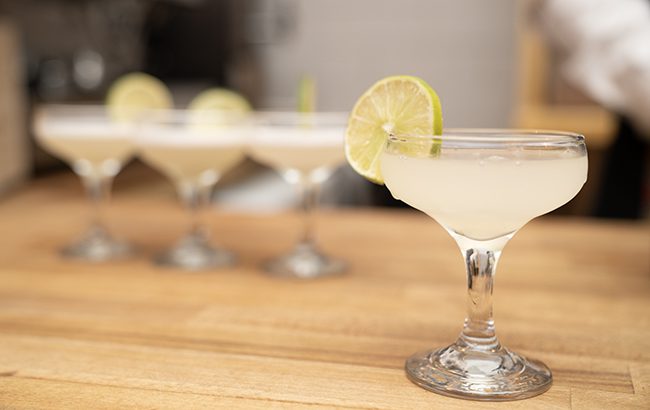Could pisco be the UK’s next big category?
Chilean pisco, a grape-based spirit most well-known for its use in a classic Pisco Sour, could soon be on menus and shelves across the UK.

Pisco can be made in either Peru or Chile, but ProChile, the trade agency of the Chilean government, has been working to develop the presence of its national spirit in the UK, France, Germany, the US and China.

Nicolas Poblete Bravo, trade commissioner at ProChile, explained that Chile is responsible for 80% of global pisco production, with an annual production of approximately 35 million litres. In contrast, Peru, more readily associated with the spirit, produces only nine million litres.
The Chilean version is perhaps less well-known abroad due to its remarkable popularity within its domestic market.
“A few years ago, we had around 10 to 15 well-known brands of pisco in Chile. Today, we have more than 200 brands,” said Poblete Bravo.
“Out of the 35 million litres of pisco that we produce, more than 95% is consumed in the country.
“In Chile, there is a real culture for pisco. Every party, every wedding, everywhere – you will find a Pisco Sour and Piscola. That is our national drink: ice, pisco and Coke.”
ProChile’s mission, therefore, is not simply about business. “It’s part of sharing our culture,” he explained.
Export markets also hold a specific opportunity for premiumisation.
“Premium piscos in Chile are doing well,” he said. “But we still drink it with Coke or in a Pisco Sour.
“With the premiumisation of the product, we’re aiming to go abroad.
“Even the most premium brand currently in the UK – Waqar – that is only around £45 [US$55] per bottle. You can drink it with a piece of ice. It’s amazing.”
Journey to the UK
The UK is a particular focus for ProChile this year.
“For any company selling a product or service, the UK is a good start,” explained Poblete Bravo. “In the spirits category, it’s a huge market in terms of consumption.
“There’s a big culture of pubs and bars – the hospitality sector is huge. It’s a very interesting market for Chilean producers.”
At the minute, only three Chilean pisco brands are easily available in the UK: ABA, El Gobernador and Waqar. But that is likely to change soon, following an import deal for Compañía de las Cervecerías Unidas (CCU), one of the largest drinks companies in Chile.
“It owns two or three of the most recognised brands of pisco, and it found an importer this year,” explained Poblete Bravo. “So, it will start bringing its products to the UK, hopefully in the next two months.”
Some brands that ProChile has been working with and hopes to see in the UK soon are Amauta, Tololo, Cogotí and Nontay.
But is the UK ready for an influx of Chilean pisco brands? Poblete Bravo believes so.
Part of ProChile’s campaign has involved taking pisco to trade events, including Imbibe Live in July and the Wines of Chile Trade Tasting in September, as well as hosting its own events at its headquarters in the Embassy of Chile in London.
“The reception of consumers and the trade has been amazing,” explained Poblete Bravo. “All of them loved pisco.”
“All of the trends say that whisky and gin sales are going down. People are trying to find interesting new products – like Tequila, mezcal, flavoured vodkas, spiced rums. Those products are doing really, really well. So it should be a good moment for pisco.”
But the issue isn’t necessarily consumer interest, but finding distributors willing to take a chance on pisco producers.
“Buyers, they need to buy – but the most difficult part is selling the product. If they’re not selling enough, they can’t get new brands into the portfolio.
“The reception of consumers and bar managers has been amazing. But there are not many importers saying: ‘OK, I’m going to buy now.’”
While there might be a few bars and discerning consumers looking to expand their pisco shelves, distributors can’t stock a new product unless they can be sure they’ll sell around five to 10 bottles a week.
“There are lots of people who don’t know that pisco exists,” admitted Poblete Bravo. “So we’re creating that awareness, making them taste the product, know the quality and value. The value quality of the product is really good. And, after that, we can start talking directly to importers to get the business done.”
Related news
The Radicle brings $10 cocktails to Chicago
